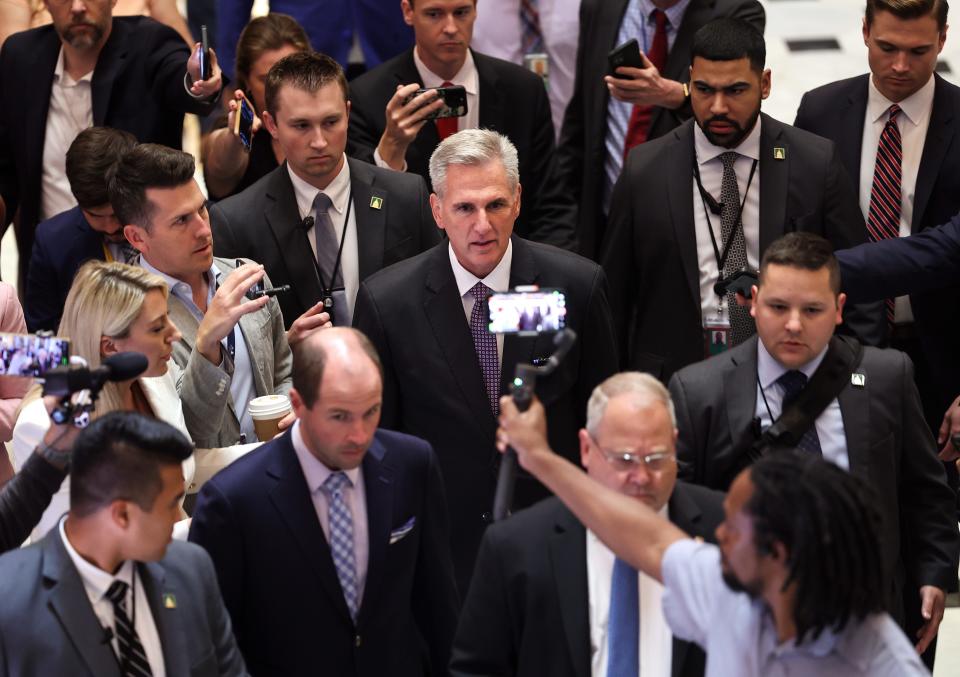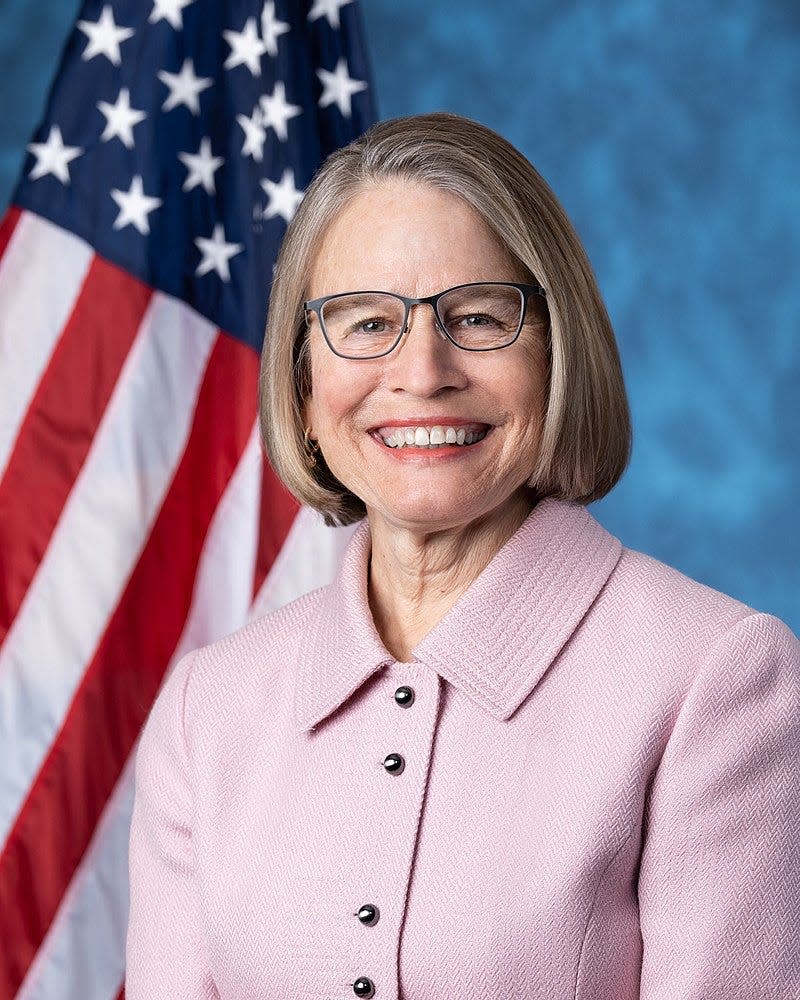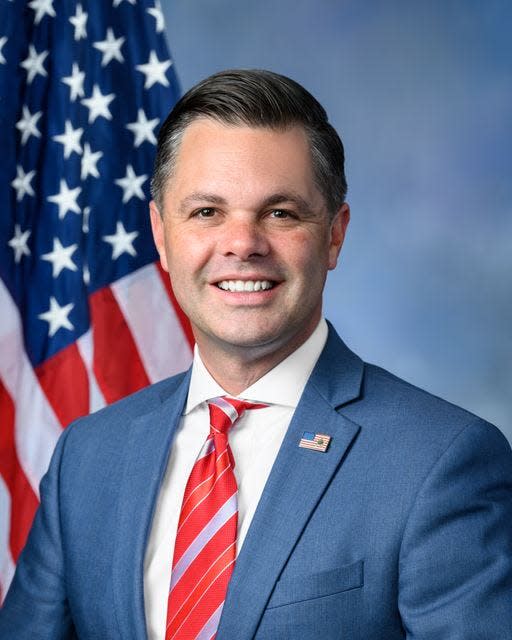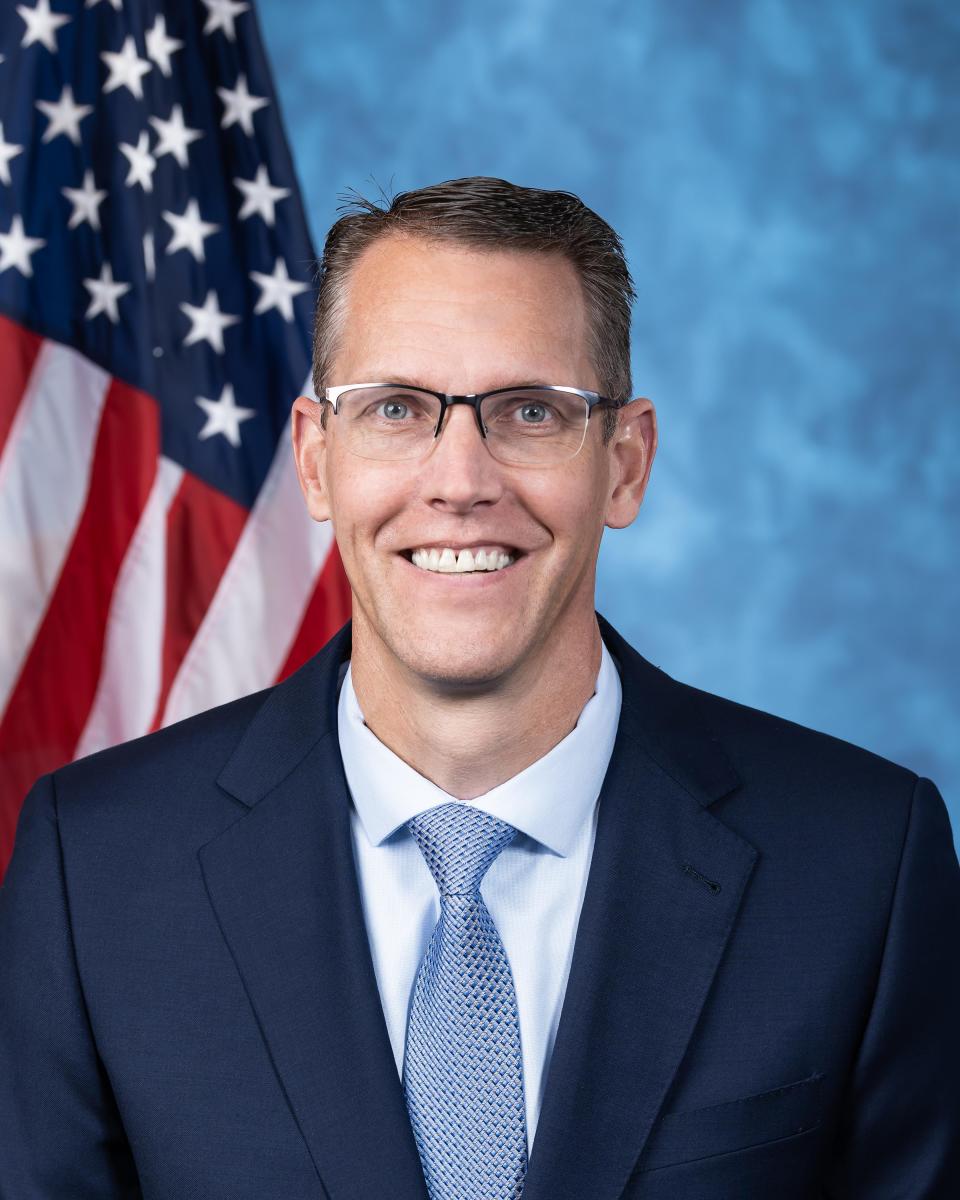Why Iowa's Republican Congressional delegation all voted to raise the debt ceiling
- Oops!Something went wrong.Please try again later.
Iowa's Republican members of Congress all voted to raise the nation's debt ceiling, joining a majority in the House and the Senate in passing the bill to stave off a predicted economic disaster.
The measure passed the U.S. House of Representatives Wednesday evening on a vote of 314-117, with Iowa's U.S. Reps. Mariannette Miller-Meeks, Ashley Hinson, Zach Nunn and Randy Feenstra in favor.
The Senate passed the bill Thursday night on a 63-36 vote. Iowa's U.S. Sens. Chuck Grassley and Joni Ernst voted in favor.
Seventy-one House Republicans voted against the deal, including some of the chamber's most conservative members, who argued that the spending limits in the bill fall short of the plan the GOP-led House passed earlier this year.
Forty-six House Democrats were opposed, including progressives who said that President Joe Biden made too many concessions to Republicans when negotiating the agreement and that provisions in the legislation will harm vulnerable Americans.
In the Senate, 31 Republicans and five liberals − including Sens. Bernie Sanders, I-Vt., and Elizabeth Warren, D-Mass. − opposed the bill.

More: Debt ceiling deal passes House by wide margin, heads to Senate as June 5 default looms
The legislation suspends the nation's debt ceiling until 2025, avoiding a potential government default.
It also caps discretionary spending for two years, keeping all nonmilitary spending levels flat next year and allowing a 1% increase in 2025 for everything other than Social Security and Medicare.
It also contains some new work requirements for the Supplemental Nutrition Assistance Program and Temporary Assistance for Needy Families program while eliminating work requirements for homeless Americans and veterans to receive food benefits.
More: Who voted against the debt ceiling bill in the House? These 117 lawmakers opposed it
The bill also rolls back some of the expanded funding to the Internal Revenue Service passed last year as part of the Inflation Reduction Act, a top target of Republicans. And it claws back unspent COVID-19 relief fund money.
Here's what Iowa's members of Congress say about the debt ceiling deal.
US Rep. Mariannette Miller-Meeks, IA-01, voted yes

U.S. Rep. Mariannette Miller-Meeks, a Republican who represents the 1st Congressional District, in southeast Iowa, called the deal "the largest deficit reduction bill in history" and said it protects funding for veterans, seniors and national security.
"Iowa’s and America’s energy producers and infrastructure projects will benefit from a streamlined permitting process," Miller-Meeks said in a statement. "This bill also defunds the IRS and keeps it from being weaponized against hardworking taxpayers. This bill’s common sense spending reforms and policies are the first steps in putting our country on a path to fiscal responsibility."
US Rep. Ashley Hinson, IA-02, voted yes

U.S. Rep. Ashley Hinson, a Republican who represents the 2nd Congressional District, said Biden and Democrats "are addicted to spending taxpayer dollars."
"The Fiscal Responsibility Act cuts spending and includes significant reforms to our spending process, avoids a default that would have catastrophic consequences on everyday Iowans and is a sensible solution in a divided government," Hinson said in a statement. "The next step is ensuring we have conservative leadership in the White House and Senate that will follow the Iowa model of safeguarding taxpayer dollars and budgeting responsibly."
US Rep. Zach Nunn, IA-03, voted yes

U.S. Rep. Zach Nunn, a Republican who represents the 3rd Congressional District, in central and southern Iowa, called the bill "a strong step towards fiscal responsibility."
"Importantly, by preventing default, this bill will provide critical certainty to Iowans who rely on the government to pay its bill on time and prevent a catastrophic interest rate increase that would have made it nearly impossible for first-time homebuyers and Iowa's aspiring small business owners," Nunn said in a statement. "Now, the fight continues to balance the budget and make Washington, D.C. operate more like Iowa."
US Rep. Randy Feenstra, IA-04, voted yes

U.S. Rep. Randy Feenstra, a Republican who represents the 4th Congressional District, said Congress "took important steps to reform and restrain President Biden's out-of-control spending spree."
"Today, we avoided financial ruin for Iowa farmers, families and main street businesses with the passage of this measure. While imperfect, this bill includes many important long-term spending controls and enables us to pass real, comprehensive spending reform," Feenstra said in a statement Wednesday. "Passage of this bill is an important first step in restoring fiscal sanity in Congress. The next step is firing Joe Biden and electing fiscal conservative majorities to Congress who are serious about getting America's fiscal house in order."
US Sen. Chuck Grassley voted yes
Grassley, Iowa's senior senator, told reporters Wednesday before the House vote that "there's a lot of good in it and then some that's not so good."
"But defaulting is not an option, and I feel strongly about that," Grassley said.
Later, he told Fox News, "Yes, I'm going to vote for it."
Grassley said he likes the spending cuts in the bill, measures to change the permitting process for energy projects and the new work requirements for food benefits. But he said he doesn't think the spending cuts go far enough.
"That’s the art of compromise," Grassley said. "We’ve got a Republican House, Democrat Senate, Democrat president. And the House knew going into passing their bill that it would have to be a compromise with what the president would sign and what the Senate might do with it."
U.S. Sen. Joni Ernst voted yes
Ernst voted in favor of the compromise, although she said in a Thursday night statement that the bill is "not a perfect solution."
"(B)ut I agree with our entire Iowa delegation that it forces Washington to spend less than the year before, reclaims billions from unspent COVID funds, cuts red tape to increase domestic energy production, and adds necessary work requirements for welfare," Ernst said.
In a Fox News appearance on Thursday, Ernst urged viewers to vote in a Republican Senate majority if they hoped for a "different outcome."
"We do have the hard fact that we are in the minority here in the Senate, we don’t have the White House," she added. "For heaven’s sakes, people, if you want a different outcome let’s make sure we flip the Senate and that we do get the White House. Then we can move ahead with very ambitious goals."
Katie Akin and USA Today contributed to this article.
Stephen Gruber-Miller covers the Iowa Statehouse and politics for the Register. He can be reached by email at sgrubermil@registermedia.com or by phone at 515-284-8169. Follow him on Twitter at @sgrubermiller.
This article originally appeared on Des Moines Register: Iowa Congress members explain why they voted to raise the debt ceiling

